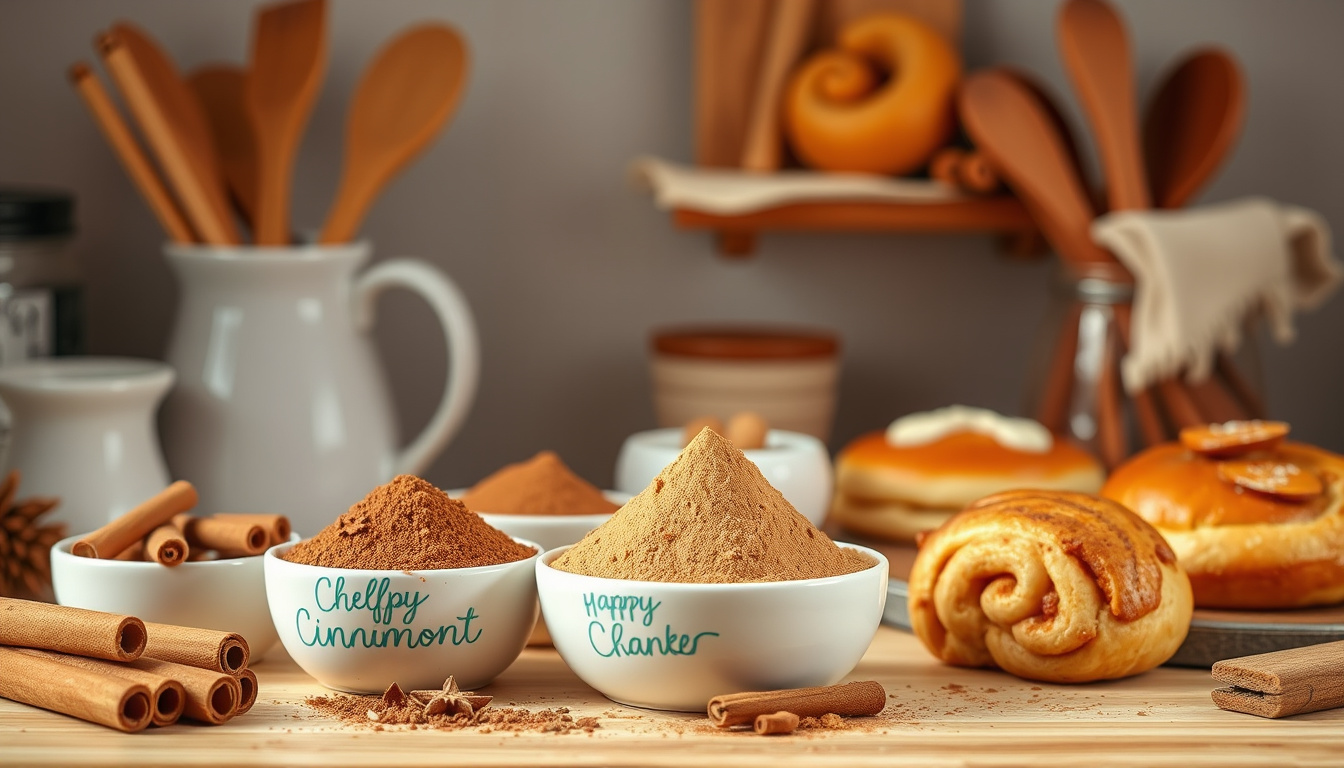Top 10 Powerful Herbs That Help Lower Blood Sugar Naturally
 Jill Smith
Jill SmithManaging blood sugar levels is crucial for overall health, especially for those living with diabetes or prediabetes.
With the rise of chronic illnesses related to insulin resistance, many are turning to natural remedies to aid in blood sugar management.
Among these remedies, certain herbs have proven to be effective in helping individuals maintain optimal glucose levels.
In this article, we will explore the top 10 powerful herbs that help lower blood sugar naturally, providing both the scientific background and practical implications of incorporating these herbs into your diet.
From the sweet spice of cinnamon to the unique properties of bitter melon, discover how these herbs can play a vital role in your journey towards healthier blood sugar management.

Key Takeaways
- Effective blood sugar management can significantly improve health outcomes.
- Certain herbs offer natural alternatives to pharmaceutical interventions for blood sugar control.
- Cinnamon is renowned for its ability to enhance insulin sensitivity.
- Fenugreek seeds may help stabilize blood sugar levels after meals.
- Bitter melon mimics insulin effects, making it a valuable addition to a diabetic diet.
Introduction to Blood Sugar Management
Managing blood sugar levels is crucial for overall health, especially for individuals with diabetes or those at risk of developing this condition.
An effective strategy involves both lifestyle changes and dietary adjustments, including the incorporation of natural remedies.
Among these, herbs that help lower blood sugar have gained attention for their potential benefits.
Through various studies, certain herbs have been shown to influence the body’s insulin response and improve glucose metabolism.
For instance, herbs like cinnamon, bitter melon, and berberine not only have traditional usage in many cultures but also boast scientific backing for their role in regulating blood sugar levels.
In this article, we will explore how these natural solutions work, their safety profiles, and practical ways to integrate them into your diet.
Understanding the Role of Herbs in Blood Sugar Control
Herbs have been utilized for centuries in traditional medicine to manage various health conditions, and their role in blood sugar control is increasingly recognized in modern research.
Among the most effective herbs that help lower blood sugar are cinnamon, fenugreek, and bitter melon, each with unique properties that contribute to improved glycemic control.
Cinnamon, for instance, is well-known for its ability to enhance insulin sensitivity, making it a popular choice for those looking to manage their blood sugar levels naturally.
Fenugreek seeds, rich in soluble fiber, can slow down the absorption of carbohydrates and sugars, leading to more stable blood sugar levels after meals.
Meanwhile, bitter melon contains compounds that mimic insulin, helping to lower blood sugar by promoting the uptake of glucose by cells.
By incorporating these herbs into a balanced diet, individuals can explore effective natural strategies for maintaining optimal blood sugar levels, alongside regular monitoring and consultation with healthcare professionals.
'Let food be thy medicine and medicine be thy food.' - Hippocrates

1. Cinnamon: The Sweet Solution
When it comes to managing blood sugar levels, many individuals are turning to natural remedies, particularly herbs that help lower blood sugar.
One of the most widely researched and celebrated is cinnamon.
This fragrant spice, often used in both sweet and savory dishes, does more than just add flavor.
Cinnamon contains bioactive compounds that enhance insulin sensitivity, allowing the body to utilize glucose more effectively.
Studies have shown that incorporating cinnamon into your diet can lead to significant reductions in fasting blood sugar levels, making it an excellent choice for those looking to manage diabetes or simply maintain stable blood sugar levels.
Additionally, cinnamon is abundant in antioxidants, which further supports metabolic health.
Whether sprinkled over oatmeal, blended into smoothies, or brewed in tea, this versatile herb can sweeten your meals while working wonders on your blood sugar management.
2. Fenugreek: A Seed for Stability
Fenugreek is one of the powerful herbs that help lower blood sugar, making it a notable contender in the realm of natural remedies for diabetes management.
This ancient herb, rich in soluble fiber, has a remarkable ability to slow down carbohydrate absorption in the digestive tract, which can lead to lower blood sugar levels after meals.
Additionally, research indicates that fenugreek may enhance insulin sensitivity, allowing your body to use insulin more effectively.
Incorporating fenugreek into your daily diet can be as simple as adding the seeds to your meals, using fenugreek powder in smoothies, or taking it in capsule form.
With its numerous health benefits and stabilizing effects on blood sugar, fenugreek stands out as a valuable ally in maintaining overall metabolic health.

3. Berberine: The Metabolic Miracle
When it comes to exploring effective herbs that help lower blood sugar, berberine stands out as a remarkable candidate worthy of attention.
Extracted from various plants including goldenseal and barberry, berberine has been the subject of numerous studies highlighting its potential benefits for metabolic health.
This powerful compound works through several mechanisms to enhance insulin sensitivity and reduce glucose production in the liver, effectively stabilizing blood sugar levels.
Research has shown that berberine can lower blood sugar levels not only in those with diabetes but also in people at risk of developing the condition.
With its promising benefits and a long history of use in traditional medicine, berberine is becoming a go-to option for those seeking to manage their blood sugar naturally.
Incorporating this herb into your routine could be a game changer for your metabolic health, making it an integral part of the conversation about herbs that help lower blood sugar.
4. Bitter Melon: Nature's Insulin
Bitter melon, also known as Momordica charantia, has gained recognition as one of the most effective herbs that help lower blood sugar.
This unique vegetable is often used in traditional medicine, especially in Asian cultures, for its remarkable ability to manage diabetes.
Bitter melon contains several active compounds, including charantin, which has been shown to enhance glucose uptake and improve insulin sensitivity.
Numerous studies suggest that incorporating bitter melon into the diet can lead to significant reductions in blood sugar levels.
Whether enjoyed in juices, stir-fries, or supplements, bitter melon not only offers potential health benefits but also a natural alternative for those seeking to manage their blood sugar levels effectively.
If you’re exploring ways to regulate your blood glucose, consider adding bitter melon to your list of medicinal herbs.
Frequently Asked Questions
What are some common herbs that help lower blood sugar?
Some common herbs that help lower blood sugar include Cinnamon, Fenugreek, Berberine, Bitter Melon, Gymnema Sylvestre, and Aloe Vera.
How do herbs lower blood sugar levels?
Herbs lower blood sugar levels through various mechanisms, such as enhancing insulin sensitivity, improving glucose metabolism, or mimicking insulin effects in the body.
Can I rely solely on herbs to manage my blood sugar?
While herbs can be beneficial for blood sugar management, they should not replace prescribed medical treatments or a healthy lifestyle.
Always consult a healthcare professional for personalized advice.
Are there any side effects of using these herbs?
Some herbs may have side effects or interact with medications.
It's important to consult with a medical professional before starting any herbal supplement, especially for those with diabetes or other health conditions.
How can I incorporate these herbs into my diet?
You can incorporate these herbs into your diet by adding them to foods, using supplements, or drinking herbal teas.
However, be sure to follow recommended dosages and consult a healthcare provider if you have any health concerns.
Turn Back the Clock: Unlock the Secrets to Reverse Diabetes in 30 Days. Don't Wait! Download Now
Subscribe to my newsletter
Read articles from Jill Smith directly inside your inbox. Subscribe to the newsletter, and don't miss out.
Written by
